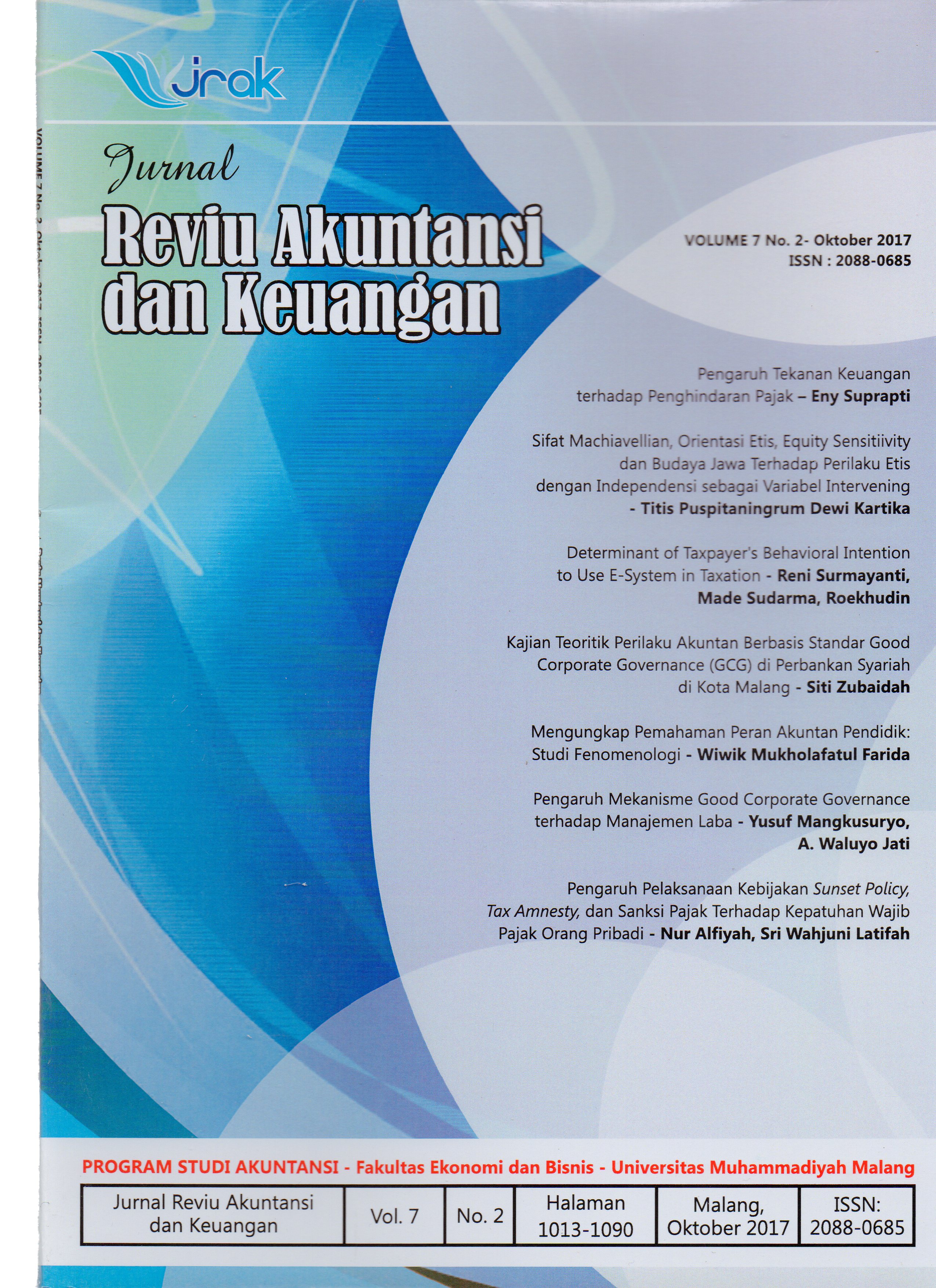Determinant of Taxpayer’s Behavioral Intention to Use ESystem in Taxation
DOI:
https://doi.org/10.22219/jrak.v7i2.17Abstract
Determinant of Taxpayer’s Behavioral Intention to Use ESystem in Taxation. The purpose of
this research is to examine the effect of attitude, subjective norms, perceived behavior control,
perceived usefulness, perceived ease of use, self-efficacy and amount of information towards
taxpayer’s behavioral intention to use e-system in taxation. This research was conducted in KPP
Pratama Kuala Tungkal. Data collection method used is survey method by spreading the questionnaire. The sample of research is Personal Taxpayer (WPOP) who use e-system. Data analysis using Partial Least Square (PLS) with warpPLS software version 3.0. This research found
thatattitude, subjective norms and perceived behavior control does not affect the taxpayer’s
behavioral intention to use e-system in taxation. Perceived usefulness, perceived ease of use,
self-efficacy and amount of information affects the taxpayer’s behavioral intention to use esystem in taxation.
Keywords: Behavioral intention, e-system, Personal Taxpayer (WPOP).
Downloads
Downloads
Published
Issue
Section
License

Jurnal Reviu Akuntansi dan Keuangan is licensed under a Creative Commons Attribution-NonCommercial-ShareAlike 4.0 International License.
Authors who publish with this journal agree to the following terms:
- Authors retain copyright and grant the journal right of first publication with the work simultaneously licensed under a Creative Commons Attribution-NonCommercial-ShareAlike 4.0 International License that allows others to share the work with an acknowledgement of the work's authorship and initial publication in this journal.
- Authors are able to enter into separate, additional contractual arrangements for the non-exclusive distribution of the journal's published version of the work (e.g., post it to an institutional repository or publish it in a book), with an acknowledgement of its initial publication in this journal.
- Authors are permitted and encouraged to post their work online (e.g., in institutional repositories or on their website) prior to and during the submission process, as it can lead to productive exchanges, as well as earlier and greater citation of published work (See The Effect of Open Access).










